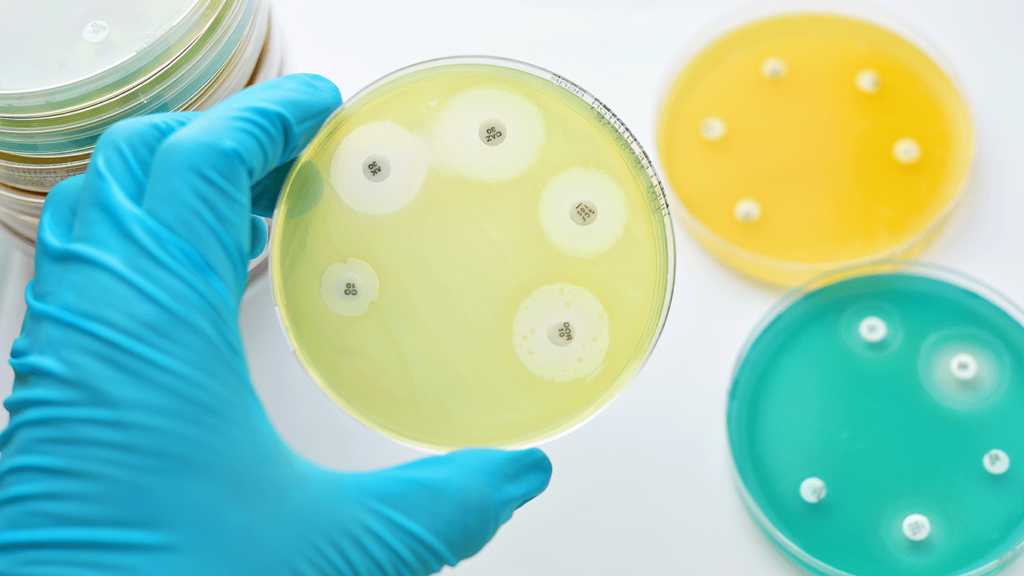
Increasing access to clean water and flush toilets could be an effective way to curb the rise of antibiotic resistance, particularly in urban areas of Africa and Southeast Asia. That’s among the key findings from a new ecological study, published today in Lancet Microbe, by a multi-institutional team of researchers led by Amy Pickering, assistant professor of civil and environmental engineering at UC Berkeley.
“Our study highlights the role of environmental transmission of antibiotic resistance in settings with inadequate sanitation,” said Pickering, the Blum Center Distinguished Chair in Global Poverty and Practice.
Antibiotic resistance is a leading cause of death in low- to middle-income countries (LMICs) and a major public health concern globally. People who live in these countries generally carry a higher burden of disease-causing bacterial infections. Many of the most concerning types of pathogenic bacteria, Pickering said, acquire antibiotic resistance genes (ARGs) directly from other bacteria through a process called horizontal gene transfer, which is a driver of pathogen evolution.
“Horizontal gene transfer of resistance genes likely plays an important role in the spread of antibiotic resistance through the environment, and inadequate sanitation leads to higher concentrations of fecal bacteria in the environment,” said Pickering.
According to the study, “inadequate water, sanitation and hygiene (WASH) infrastructure and access could exacerbate the spread of [this] resistance.” However, there has been little in the way of evidence on the potential for WASH access to reduce antibiotic resistance in humans.
“We aimed to determine the relationship between the burden of antibiotic resistance in humans and community access to water and sanitation by leveraging publicly available data,” said Pickering.
For their study, the researchers turned to “metagenomic data,” which is genetic sequence data from all of the material in a sample. Specifically, they looked at human fecal metagenomes, tagged by geospatial location, from the National Center for Biotechnology Information’s Sequence Read Archive. They linked this data with household survey datasets — also geo-referenced — that reported access to drinking water sources and sanitation facility types. One advantage of this approach is that human fecal samples are more representative than using sewage, considering a large proportion of households in low-income settings are not connected to sewage systems.
Over the past decade, researchers have seen an increased capacity for cost-effective DNA sequencing of microbial communities — i.e., metagenomic sequencing. It has revealed just how common are the ARGs in mobile elements and the bacteria that colonize humans, animals and environmental niches, and it has also highlighted the scale of the challenge in preventing pathogens from acquiring resistance.
Pickering and colleagues identified 1,589 human fecal metagenomes from 26 countries. The mean abundance of ARGs was highest in Africa, compared with Europe, North America and the Western Pacific; and second highest in Southeast Asia, compared with Europe and North America.
“Increased access to improved water and sanitation was associated with lower ARG abundance, and the association was stronger in urban than in rural areas,” the researchers write in the study. Improved sanitation alone was associated with a greater decrease than improved drinking water alone, “but the greatest decrease was observed with access to both improved drinking water and sanitation.”
Moreover, controlling antibiotic drug consumption is likely insufficient to stop the spread of antibiotic resistance, said Pickering. “Community environmental transmission should be given greater attention.”
The researchers point to the need for additional studies to find out if there is a causal relationship between WASH and antibiotic resistance burden, flagging the relatively small number of human fecal metagenomes from around the world, but particularly in LMICs.
“Our study is a cross-sectional analysis which can identify associations, but studies are needed to confirm that improved sanitation and water access will reduce antibiotic resistance,” said Pickering.
Other co-authors of the study include researchers at the University of Washington, Tufts University, Emory University, London School of Hygiene and Tropical Medicine, Ethiopian Institute of Water Resources, UCSF, University of North Carolina at Chapel Hill, Broad Institute, Christian Medical College, Kenya Medical Research Institute, Universidad San Francisco de Quito, Universidad Peruana Cayetano Heredia and the Chan Zuckerberg Biohub.